
Breadcrumb
Previous UN Geneva Directors-General
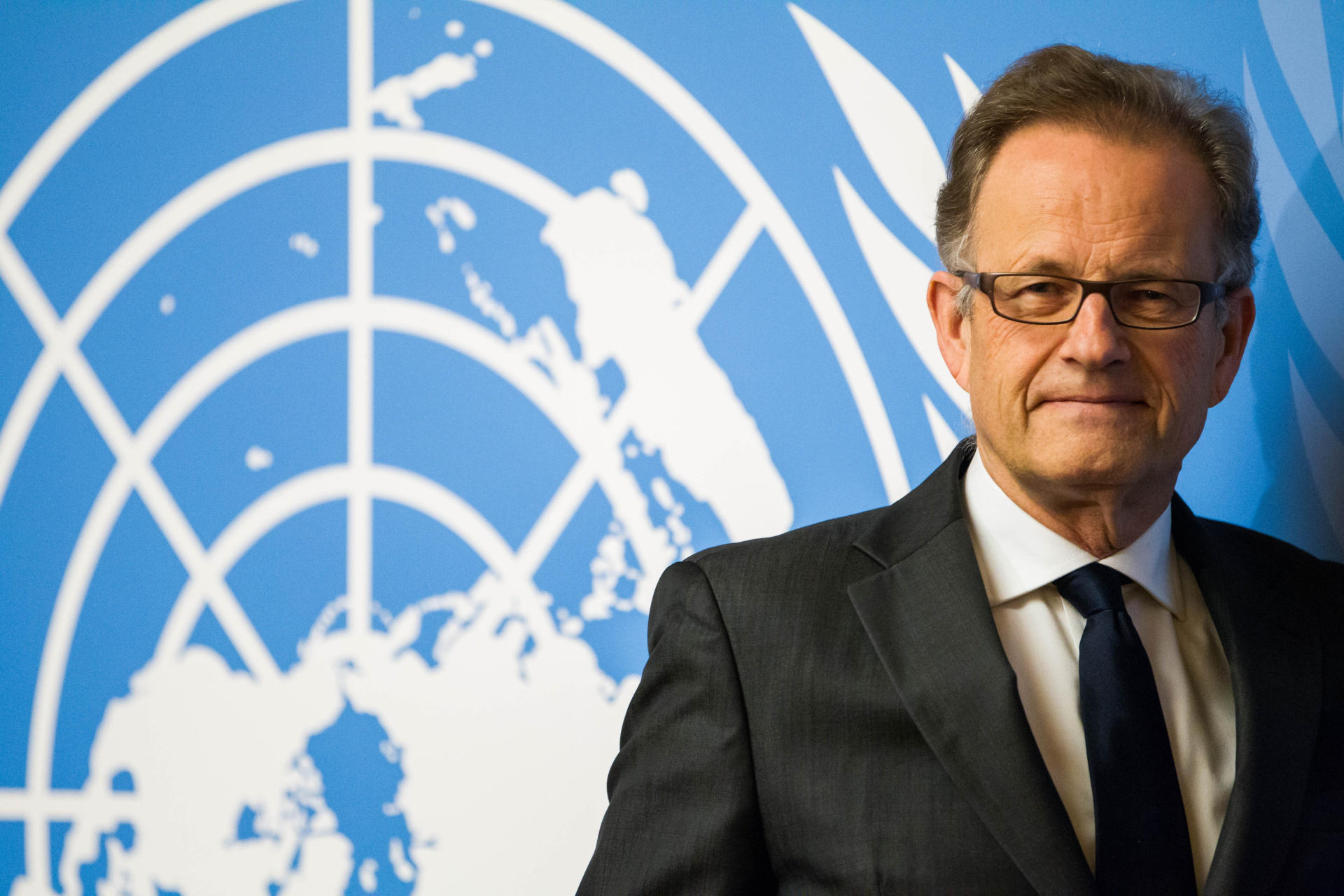
Michael Møller
Denmark 2013-2019
Michael Møller was the 12th Director-General of the United Nations Office at Geneva (UN Geneva). When he was appointed, Mr. Møller had over 30 years of experience as an international civil servant in the United Nations. He began his career in 1979 with the United Nations High Commissioner for Refugees, and worked for the United Nations in different capacities in New York, Mexico, Iran, Haiti, Cyprus and Geneva.
From 1995-1997, he served as Senior Political Adviser to the Director-General of UN Geneva. Between 1997 and 2001, he was Head of the Office of the Under-Secretary-General for Political Affairs at United Nations headquarters; between 2001 and 2006 he was Director for Political, Peacekeeping and Humanitarian Affairs in the Office of the Secretary-General, while also serving as Deputy Chef de Cabinet of the Secretary-General for the last two years of that period.
Mr. Møller also served as the Secretary-General’s Special Representative for Cyprus from 2006 to 2008 and was the Executive Director of the Kofi Annan Foundation from 2008 to 2011.
In recognition of his efforts to deepen public understanding of the vital role of the United Nations and its partners in Geneva, Mr. Møller received a series of prizes from the City of Geneva, the Union Suisse des Attachés de Presse and the Fondation pour Genève.
Born in 1952 in Copenhagen, Denmark, Mr. Møller earned a Master’s degree in International Relations from Johns Hopkins University, United States, and a Bachelor’s degree in International Relations from the University of Sussex, United Kingdom.
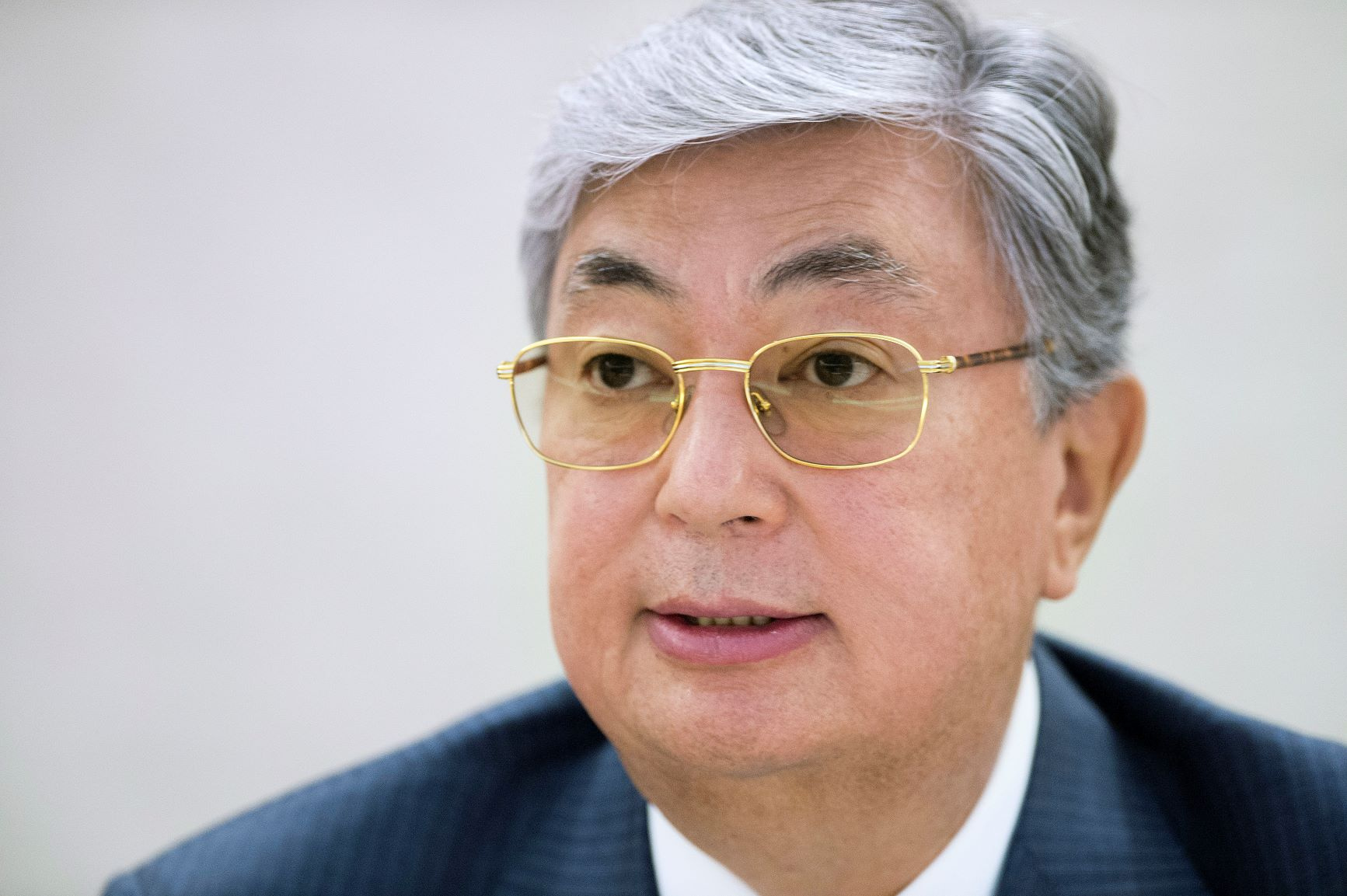
Kassym-Jomart Tokayev
Kazakhstan 2011-2013
In March 2011, the Secretary-General of the United Nations announced the appointment of Mr. Tokayev as Director-General of the United Nations Office at Geneva, Under Secretary-General, and Personal Representative of the United Nations Secretary-General to the Conference on Disarmament. Prior to this appointment, Mr. Tokayev had a distinguished career in the diplomatic and government service of the USSR and Kazakhstan.
Upon graduation from the Moscow State Institute of International Relations in 1975, Mr. Tokayev joined the Ministry of Foreign Affairs of the USSR and was posted to the Soviet Embassy in the Republic of Singapore. In 1979 he returned to the Ministry of Foreign Affairs of the USSR.
In 1983, he went to the People’s Republic of China for language courses at the Beijing Language Institute. In 1984-1985, he served in the Ministry of Foreign Affairs. He was then posted to the Soviet Embassy in Beijing where he served until 1991 as Second Secretary, First Secretary, and Counsellor.
In 1992, Mr. Tokayev was appointed Deputy Foreign Minister of the Republic of Kazakhstan. In 1993, he became First Deputy Foreign Minister and in 1994 he was appointed Minister of Foreign Affairs. In March 1999, he was promoted to the post of Deputy Prime Minister. In October 1999, with the endorsement of the Parliament, he was appointed Prime Minister by Decree of the President of the Republic of Kazakhstan. In January 2002, he resigned and was subsequently appointed Secretary of State – Minister of Foreign Affairs.
Mr. Tokayev continued to serve as Minister of Foreign Affairs until January 2007 when he was elected Chairman of the Senate of the Parliament of the Republic of Kazakhstan. As Minister of Foreign Affairs, Mr. Tokayev played an active role in the field of nuclear non-proliferation. In 1995 and 2005, he attended the Review Conferences for the Treaty on the Non-Proliferation of Nu-clear Weapons (NPT) in New York. In 1996, he signed the Comprehensive Nuclear-Test-Ban Treaty (CTBT) in New York and in 2005 the Treaty on a Nuclear-Weapons-Free Zone in Central Asia (CANWFZ) in Semipalatinsk. He was also elected Chair-man of the Councils of Foreign Ministers of the Commonwealth of Independent States and the Shanghai Cooperation Organization.
Mr. Tokayev took part in ten sessions of the United Nations General Assembly. As Chairman of the Senate of the Parliament, Mr. Tokayev was elected Vice-president of the Parliamentary Assembly of the Organization for Security and Co-operation in Europe (OSCE). Mr. Tokayev holds a Doctorate in Political Science. He is the author of six books and numerous articles on international affairs. He is an Honorary Professor and Doctor of the Diplomatic Academy of the Ministry of Foreign Affairs of the Russian Federation, as well as a member of its Board of Trustees. He was also Honorary Dean of the Geneva School of Diplomacy and International Relations.
Mr. Tokayev holds the diplomatic rank of Ambassador Extraordinary and Plenipotentiary. He is the recipient of several state awards from the Republic of Kazakhstan and other countries. He is fluent in Russian, English and Chinese and has knowledge of French.
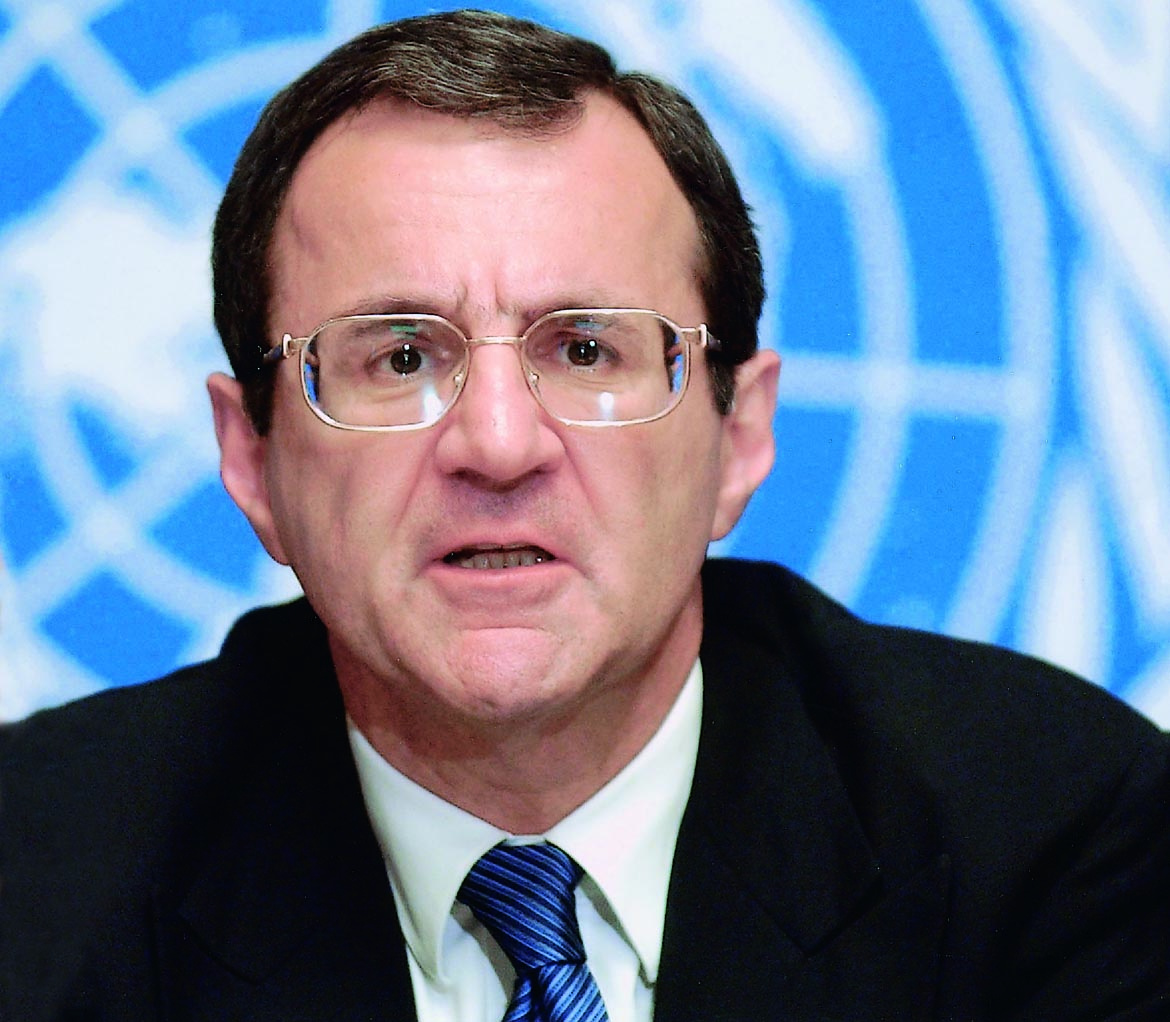
Sergei Ordzhonikidze
Russia 2002-2011
Mr. Sergei Ordzhonikidze, a Russian national, was appointed to the post of Director-General by the Secretary-General, Mr. Kofi Annan, and took up his post on 1 March 2002.
A career diplomat, Mr. Ordzhonikidze joined the Soviet diplomatic service in 1969, and was posted to the Permanent Mission of the Soviet Union to the United Nations in New York where he worked until 1975. He then served as Assistant to the Deputy Foreign Minister in Moscow until 1978 when he returned to the Permanent Mission of the USSR to the United Nations in New York, first as Counsellor and then as Senior Counsellor, until 1983.
Returning to Moscow in 1983, he was appointed Deputy Chief of the International Legal Department of the Ministry of Foreign Affairs, a post he occupied until 1991. From 1991 to 1996 he served as Deputy Permanent Representative of the USSR and then of the Russian Federation to the United Nations in New York. 1996 saw his return to Moscow, where he held the position of Director of the Department of International Organizations of the Ministry of Foreign Affairs, until 1999 when he was appointed Deputy Minister of Foreign Affairs.
Mr. Ordzhonikidze graduated from the Moscow State Institute of International Relations in 1969, and in 1978 completed his post-graduate studies on international law at the Diplomatic Academy of Moscow. He holds the diplomatic rank of Ambassador Extraordinary and Plenipotentiary and has received several State Awards.
Throughout his diplomatic career, Mr. Ordzhonikidze has served as head of the delegations of the Russian Federation to a great many international conferences and bilateral negotiations. He has also had many works published on international and legal affairs.
Mr. Ordzhonikidze was born on 14 March 1946 in Moscow. He is married and has two sons and three grandchildren. He is fluent in English and Spanish and has knowledge of French.
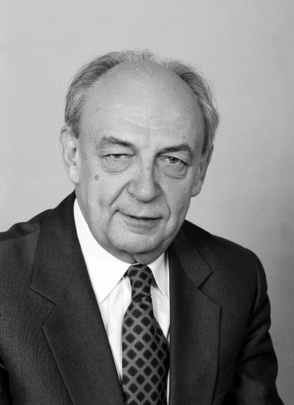
Vladimir Petrovsky
Russia March 1, 1993-2002
Born April 29, 1933 in Volgograd. He holds a doctorate in history and is a member of many international Russian institutions and academies. A career diplomat, he entered the Soviet diplomatic service in 1957 and served at the Permanent Mission of the Soviet Union to the United Nations until 1961. From 1961 to 1964, he served in the office of the Minister of Foreign Affairs in Moscow. He then joined the United Nations Secretariat from 1964 to 1971.
In 1971 he returned to the Foreign Ministry where he was a member of the foreign policy planning team responsible for relations with the United States. He participated in the preparation of the Helsinki Final Act (1975) and in disarmament negotiations. He was appointed (1979) Head of the Department for International Organizations at the Ministry of Foreign Affairs with the rank of Ambassador Extraordinary and Plenipotentiary. During the period of perestroika, led by Mikhail Gorbachev, he was appointed (1986) Deputy Minister for Foreign Affairs and in 1991 First Deputy Minister. He participated in many international conferences and sessions of the United Nations General Assembly as head of the Soviet delegation. In 1991 he was Executive Secretary of the Moscow meeting of the Conference on the Human Dimensions of the Conference on Security and Cooperation in Europe.
In 1992, he represented Russia as Ambassador to the NATO Cooperation Council. He joined the United Nations Headquarters in New York in 1992 and became Assistant Secretary-General for Political Affairs, where he chaired the task force responsible for the preparation of the UN Secretary-General's report, An Agenda for Peace. On 1 March 1993, he was appointed Director-General of UNOG, and then, on 1 October of the same year, Secretary-General of the Conference on Disarmament and Personal Representative of the Secretary-General. He was the Secretary-General's Special Envoy to Libya in 1992 and 1998.
His appointment was confirmed on 1 March 1999 by Kofi Annan. Vladimir Petrovsky wrote numerous publications on international relations, most of them in Russian: The United Kingdom Foreign Service (1958), Diplomacy at 10 Downing Street (1962), US Foreign policy thinking (1976), National Security Doctrine in US Foreign Policy Strategy (1980), Disarmament: Concepts, Problems, Mechanisms (1982) and Security in the Nuclear and Space Age (1985).
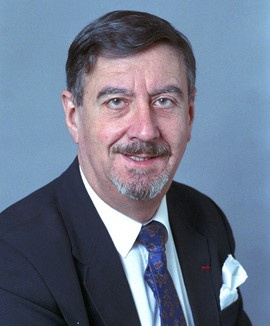
Antoine Blanca
French 1992-1993
Born 4 June 1936 in Alicante (Spain), Doctor of Letters (faculties of letters of Toulouse and Algiers). After a short career as a teacher in Algeria and then in France (from 1962 to 1966), he began a career in associations and politics. He was secretary general of the European Youth Houses (1966-1971).
He was Secretary General of the Fédération Nationale Léo-Lagrange (1971-1977), General Delegate of 3 Fédération Nationale des Élus Socialistes et Républicains (1977-1983), head of the Socialist Party for Latin America (1971-1981). In 1981, when the left came to power, he became technical adviser in the office of Prime Minister Pierre Mauroy (1981-1982). He began a diplomatic career: ambassador for the countries of South America, Central America and the Caribbean (1982-1984), ambassador to Argentina (1984-1988). He entered the service of the United Nations on 15 February 1989 as Director-General for Development and International Economic Cooperation (1989-1992).
He was appointed Director-General of UNOG and Under-Secretary-General for Human Rights on 1 March 1992, a post he held until 28 February 1993. He then resumed his career as Ambassador, as Permanent Observer of France to the Organization of American States in Washington, D.C., United States, then as Representative of France to the Economic Commission for Latin America and the Caribbean (1993-1996). Since 1997, he has been Ambassador to Peru. Antoine Blanca published a biography of Salvador Allende in 1977 and is the author of a book on Power in Latin America (1980).
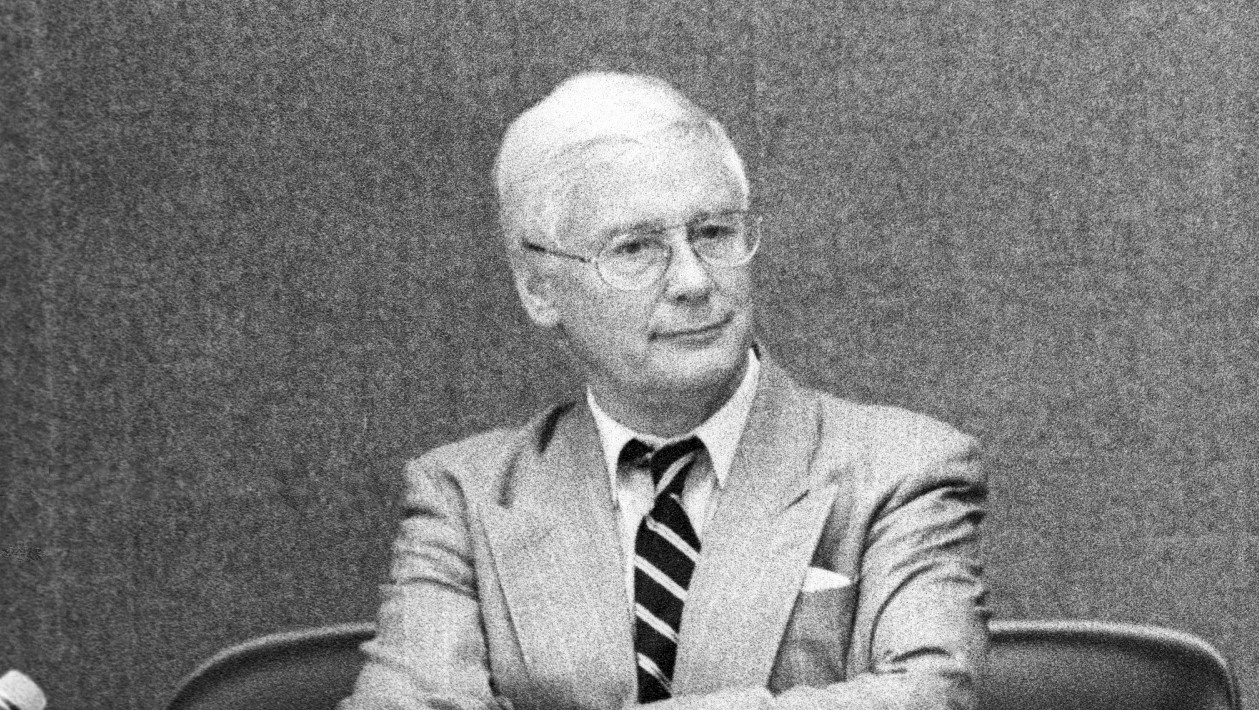
Jan Màrtenson
Sweden 1987-1992
Born on 14 February 1933 in Uppsala, graduated in law from the university of his hometown. He entered the diplomatic career in 1960. After a mission to the OECD (Paris) in 1963, he headed a United Nations department at the Swedish Foreign Ministry (1966-1967). He was secretary of the Swedish Preparatory Committee for the United Nations Conference on the Human Environment (Stockholm, 1972).
After heading the Information Department at the Ministry for Foreign Affairs, he became Chief of Staff to King Charles XVI Gustav from 1975 to 1979. He joined the United Nations in 1979 as Assistant Secretary-General of the Centre for Disarmament Affairs. He was appointed Under-Secretary-General in 1983, after the General Assembly transformed the Centre into a Department, and then Director-General of UNOG and Head of the Centre for Human Rights on 1 March 1987. He ceased his functions on 29 February 1992. He returned to the diplomatic corps of his country, becoming Ambassador to Switzerland. In addition to his diplomatic duties.
Jan Martenson began a brilliant career as a writer in the early 1970s. He is the author of successful fiction and detective stories, whose echo has spread far beyond his native country. He returned to Sweden in 1996. In 2000 he published his memoirs (Atf kyssa ett trad. Memoarer).
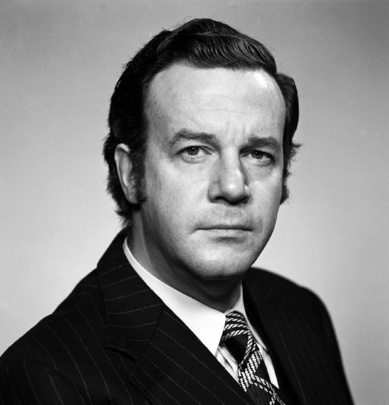
Erik Suy
Belgium 1983-1987
Born on 15 August 1933 in Ghent (Belgium), became a Doctor of Laws at the University of Ghent, a Doctor of Political Science and a graduate of the Graduate Institute of International Studies (IUHEI) in Geneva, he studied and researched at the University of Vienna and at the Academy of American and International Law in Dallas.
He began his academic career in 1963 at the Catholic University of Louvain [Leuven], and soon held the chair of published international law and the law of international organizations; in 1978 he became "Professor Extraordinary". He was a visiting professor at many universities around the world, teaching international law (Freie Universitat West Berlin; University of Kinshasa; University of Bielefeld in the Ruhr). His diplomatic career began in Belgium in 1967-1968, as advisor to the Minister of European Affairs and the Minister of Foreign Affairs (1968-1973). He was a member of the Belgian delegation to the Vienna Conferences on Diplomatic Law (1961) and the Law of Treaties (1968-1969). Chairman of the Sixth Legal Committee at the 27th session of the General Assembly (1972), he was appointed Deputy Secretary-General and Legal Adviser in New York in 1973. In 1978, he lectured at The Hague Academy of International Law. He was appointed Director-General of UNOG on 22 January 1983 and his functions ceased on 28 February 1987. Eric Suy returned to teaching at the Catholic University of Leuven (Leuven). He was currently Professor Emeritus of that University. Erik Suy is the author of several books on public international law, including the textbook Corpus iuris gentium: a collection of basic texts on modem Interstate relations [Leuven, 1996].
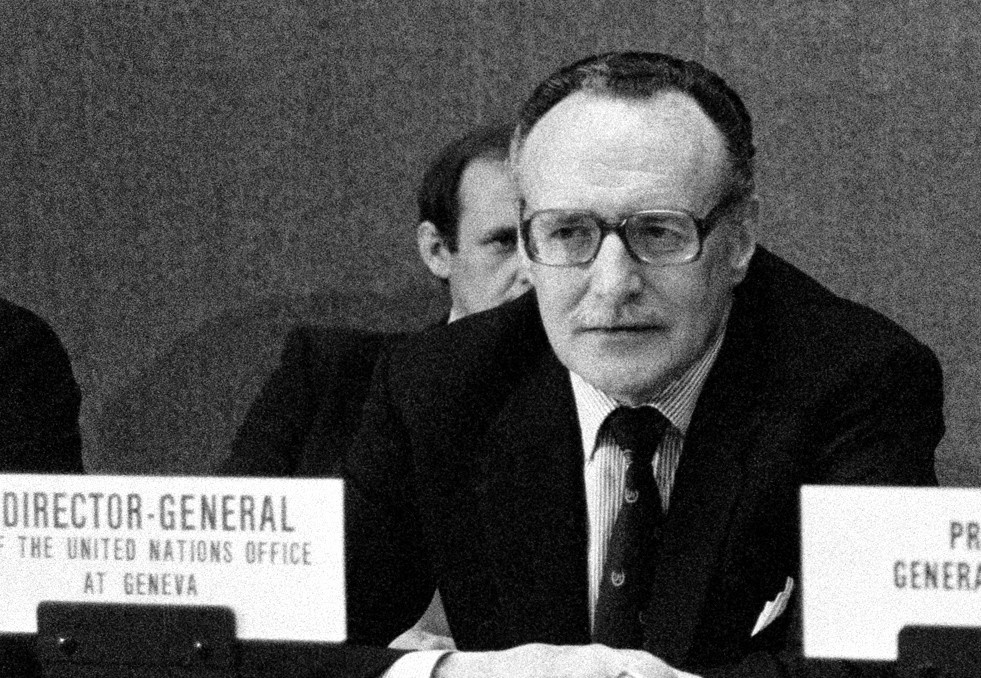
Luigi Cottafavi
Italy1978-1983
Born on 7 March 1917 in Turin, died on 6 April 1994 in Geneva. He entered the diplomatic career in 1948, and was stationed in London, Oslo. Tel Aviv and Vienna. He served as Chief of Staff to the Italian Foreign Minister (1969-1972) and as Deputy Diplomatic Adviser to the Prime Minister (1963-1969). He served as Italian Ambassador to Iran from 1972 to 1978, before being appointed Director-General of UNOG on 22 January 1978 (date of entry into the service of the United Nations). His functions ceased on 31 March 1983.
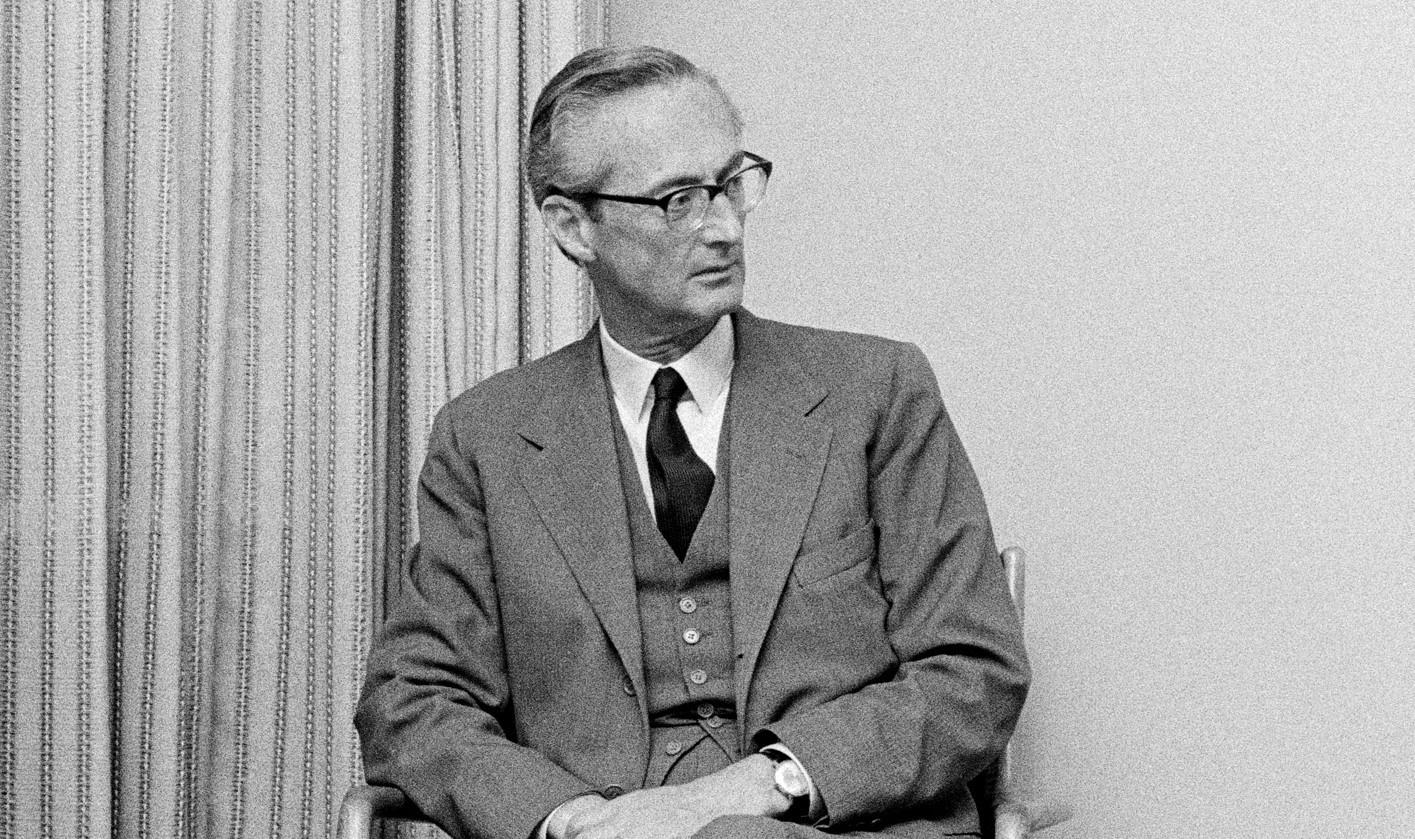
Vittorio Winspeare-Guicciardi
Italy 1968-1978
Born on 19 August 1912 in Catania (Italy), died on 20 September 1995 in Geneva. Graduated in Economics (Bocconi University, Milan), he embarked on a diplomatic career in 1936 and held positions in Latin America. After the fall of Mussolini (1943), he joined the Liaison Office of the Allied Control Commission in 1944. In London, from 1945 to 1949, he was Secretary of the Italian Embassy. He was a member of the Italian delegation to the Peace Treaty Conference in Paris (July 1946-March 1947). In May 1949, he attended, as a delegate, the first session of the Council of Europe in London. He was Ambassador in Prague from October 1966 to April 1968. He was appointed Director General of UNOG on 1 July 1968 and resigned on 24 January 1978.
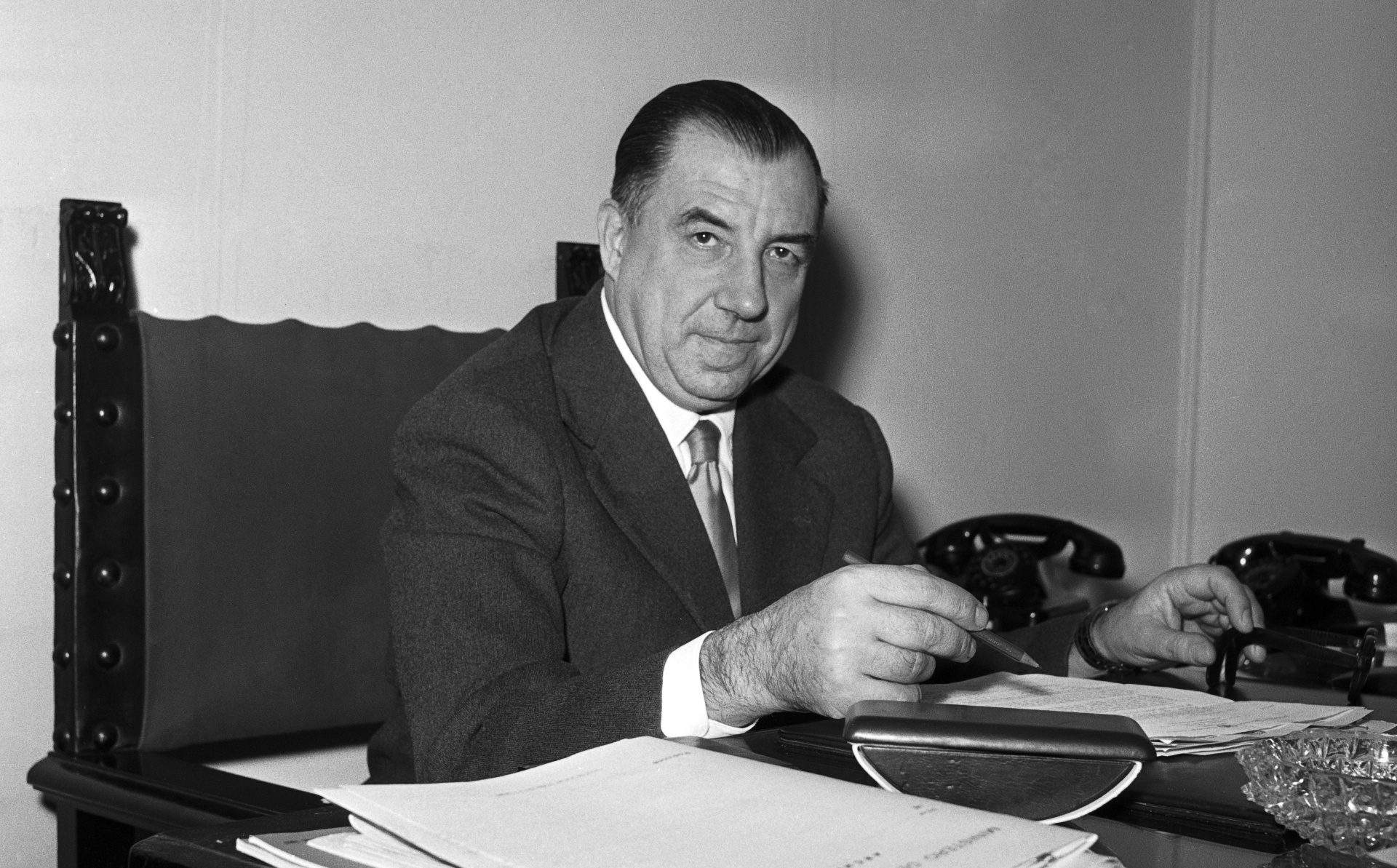
Pier Pasquale Spinelli
Italy 1957-1968
Born on 8 September 1902 in Lanciana (Italy), died on 16 November 1983 in Rome. He entered the Foreign Ministry of his country in 1927, and held key diplomatic and consular posts in the USA, Latin America and East Asia. He was appointed in 1950 in Mogadishu as deputy to the (Italian) administrator of the United Nations Trust Territory of Somalia. He served as Secretary General of the Trusteeship Administration of Somalia, and in 1955 became Deputy Director General for Emigration at the Ministry of Foreign Affairs in Rome. On 29 November 1957, he was appointed Director of the United Nations European Office (UNEO). He represented the Secretary-General in the former Trust Territory of Togo under French administration. In March 1964, he was appointed to represent the Secretary-General personally in Cyprus. He played an important role in the preparation of the visit of Pope Paul VI to the Headquarters in New York. He ceased his functions on 30 June 1968.
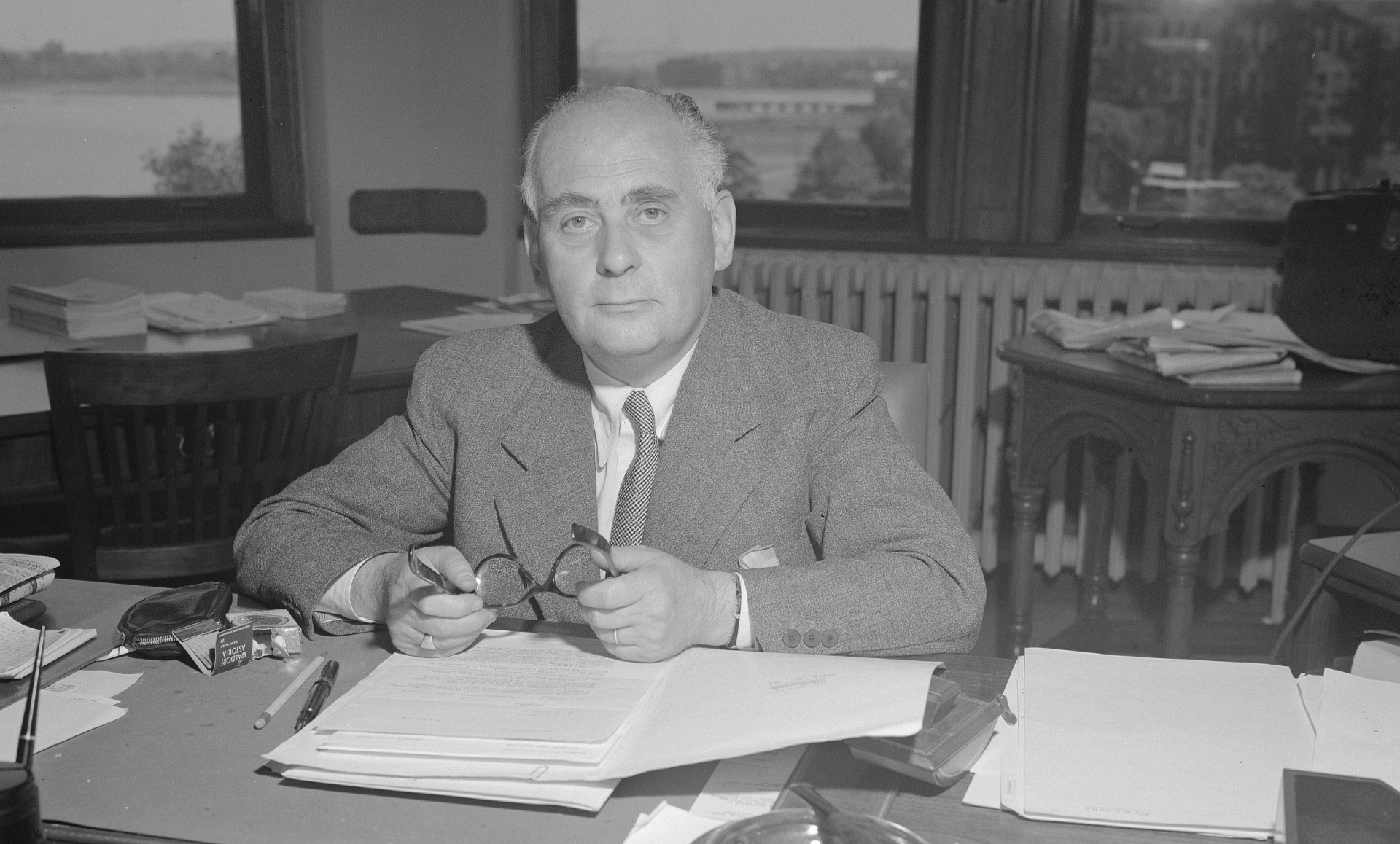
Adrian Pelt
The Netherlands 1952-1957
Born on 8 May 1892 in Koong op Zaan, Netherlands, he died on 1 April 1981 in Geneva (Hermance). After studying at Sciences Po (Paris), he became a journalist in 1919. He entered the service of the League of Nations on 1 April 1920. From 1920 to 1924, he was the head of the Press Service of the League of Nations delegation for the reconstruction of the Austria, from Vienna. In 1932 he represented the League of Nations at the Bank for International Settlements in Basel. He became Director of the League of Nations Information Section. During the war, he headed the Information Service of the Dutch government in London. He represented his country, as a member of the Dutch delegation, at the San Francisco Conference (1945). He joined the United Nations in 1946 and was appointed Under-Secretary-General of the United Nations (Department of Conferences and General Services) the same year. In 1949, he represented the United Nations in Libya as Commissioner. From April 1952 to December 1957, he was Director of the United Nations European Office (UNEO). Mr. Pelt is the author of a book, with a preface by U Thant, on the decolonization of Libya: Libian lndependence and the United Nations; a case of planned decolonization, New Haven, Yale University Press, 1970.
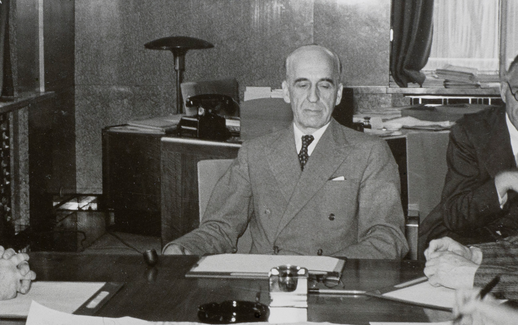
Wlodzimierz Moderow
Poland 1946-1952
Born on 2 August 1888 in Jomaszow (Poland) and died on 14 April 1970 in Geneva, Mr. Moderow was a member of the Polish Government in exile in London. Appointed "Director representing the Secretary-General of the United Nations Office at Geneva on 1 August 1946, he ceased to hold office on 30 September 1952.
